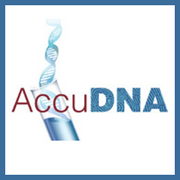
Avuncular testing compares the DNA of two parties to determine if there is a genetic aunt/uncle and niece/nephew relationship. It is a common alternative to traditional paternity testing when a suspected biological father is unavailable or unwilling to submit a DNA sample. Below are answers to some of the more commonly asked questions about avuncular DNA tests, how they work, and when you might need one.
Answers to Common Questions About Avuncular Testing
How does avuncular testing work?
During the test, DNA samples are collected through a swab of the cheek. These samples are then analyzed to see if they share genetic similarities that would define a relationship of aunt or uncle and niece or nephew. A child inherits half their genes from their biological father, while the father shares about half of his genes with a full sibling. So, around half of the child's paternal genes will match those of the father's full sibling. Only a full sibling of the father can give an accurate avuncular test.
When would someone need this kind of testing?
 The primary reason someone would pursue avuncular testing is to determine paternity when the presumed biological father is absent, usually because he has passed away, is incarcerated, or is not willing to submit to standard DNA testing. Determining paternity can be a critical help in many situations, including custody and child support orders, inheritance claims, acquisition of Social Security survivorship benefits, and establishing a family relationship for immigration sponsorship.
The primary reason someone would pursue avuncular testing is to determine paternity when the presumed biological father is absent, usually because he has passed away, is incarcerated, or is not willing to submit to standard DNA testing. Determining paternity can be a critical help in many situations, including custody and child support orders, inheritance claims, acquisition of Social Security survivorship benefits, and establishing a family relationship for immigration sponsorship.
How are the results determined?
Results are reached based on two factors: the number of genetic matches between the child and the presumed aunt or uncle and the statistical likelihood that those matches would occur randomly. These two numbers are calculated and compared to reach a percentage of probability. The higher the percentage of probability, the likelier it is that there is an aunt/uncle relationship. Bear in mind, however, that an avuncular test doesn't have to show 100 percent probability to be deemed scientifically accurate; if the percentage is toward the higher end, say 98 or 99 percent, it is generally accepted that the results are conclusive.
Is a DNA sample from the mother helpful in avuncular testing?
If possible, the mother should always submit her DNA sample as part of the child's test. This streamlines the entire process, as it helps the lab identify and eliminate the mother's DNA from the child's genetic makeup.
When you need avuncular testing in the St. Louis Metro Area, trust AccuDNA. Since 2004, they have been offering relationship testing for children, parents, grandparents, siblings, aunts, and uncles. They are a locally owned and operated business dedicated to providing accurate results, affordable services, and confidentiality at every step. Call (314) 845-9997 or visit them online to schedule an appointment.
About the Business
Have a question? Ask the experts!
Send your question

